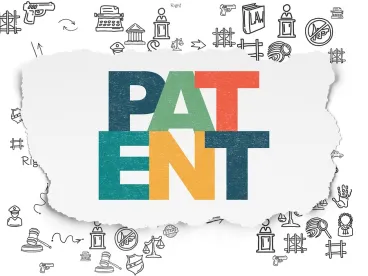In Impression Products, Inc. v. Lexmark International, Inc., the Supreme Court reversed the en banc decision of the Federal Circuit, and held U.S. patents rights exhausted by the patent owner’s sale of a patented article anywhere in the world. The Court recognized a patent owner’s ability to impose restrictions through licensing arrangements, but emphasized that patent laws cannot be used against subsequent purchasers. This decision is important for pharmaceutical and biotechnology companies with global operations, especially those who may price their products differently in different countries.
The Lexmark Sales At Issue
As summarized in this article, the en banc Federal Circuit upheld a patent holder’s rights against exhaustion under two circumstances: (1) where the patent holder had sold a patented article with “clearly communicated, otherwise-lawful restrictions” and (2) where the patent holder had sold a U.S.-patented article abroad without an express or implied license under the U.S. patent.
The sales at issue were Lexmark’s sales of its patented toner ink cartridges for printers. The domestic sales at issue were “Return Program” cartridges which were sold “subject to a single-use/no-resale restriction,” and cost about 20% less than “Regular” cartridges sold without restriction. The foreign sales at issue included both Return Program cartridges and Regular cartridges.
The Vanishing Nature Of Patent Rights
The Supreme Court decision was authored by Chief Justice Roberts. Justice Ginsburg dissented on the foreign exhaustion issue. Justice Gorsuch did not participate.
In reaching its decision, the Court emphasized the “impeccable historical pedigree” of doctrine against restraints on the alienation of goods. The Court explained that while the patent system gives a patent owner limited rights to exclude others from making, using and selling patented goods, those rights are extinguished when the patent owner sells a patented item.
The right to use, sell, or import an item exists independently of the Patent Act. What a patent adds—and grants exclusively to the patentee—is a limited right to prevent others from engaging in those practices. …. Exhaustion extinguishes that exclusionary power. …. As a result, the sale transfers the right to use, sell, or import because those are the rights that come along with ownership, and the buyer is free and clear of an infringement lawsuit because there is no exclusionary right left to enforce.
Having based its decision on domestic exhaustion on these fundamental principles, the Court had no difficulty reaching the same decision on foreign exhaustion:
Applying patent exhaustion to foreign sales is just as straightforward. Patent exhaustion, too, has its roots in the antipathy toward restraints on alienation … and nothing in the text or history of the Patent Act shows that Congress intended to confine that borderless common law principle to domestic sales. In fact, Congress has not altered patent exhaustion at all; it remains an unwritten limit on the scope of the patentee’s monopoly.
The Court was not bothered by the notion that an ex-U.S. sale could extinguish U.S. patent rights:
[T]he Patent Act does not guarantee a particular price, much less the price from selling to American consumers. Instead, the right to exclude just ensures that the patentee receives one reward … for every item that passes outside the scope of the patent monopoly.
The Difference Between Patent Rights And Remoras
Writing for the majority, Justice Roberts summed up the decision as follows:
Exhaustion occurs because, in a sale, the patentee elects to give up title to an item in exchange for payment. Allowing patent rights to stick remora-like to that item as it flows through the market would violate the principle against restraints on alienation. Exhaustion does not depend on whether the patentee receives a premium for selling in the United States, or the type of rights that buyers expect to receive. As a result, restrictions and location are irrelevant; what matters is the patentee’s decision to make a sale.

Not being a marine biologist or shark week viewer, the reference to remora sent me Googling. I learned from the Encyclopædia Britannica website that remoras (also known as suckerfish) attach themselves to larger fish (like sharks) or ships, and go along for the ride, feeding off the host’s waste. They aren’t parasites, since they may benefit their hosts by feeding on true parasites and dead skin, but Wikipedia cites their reputation in ancient mythology for stopping ships from sailing.




 />i
/>i
